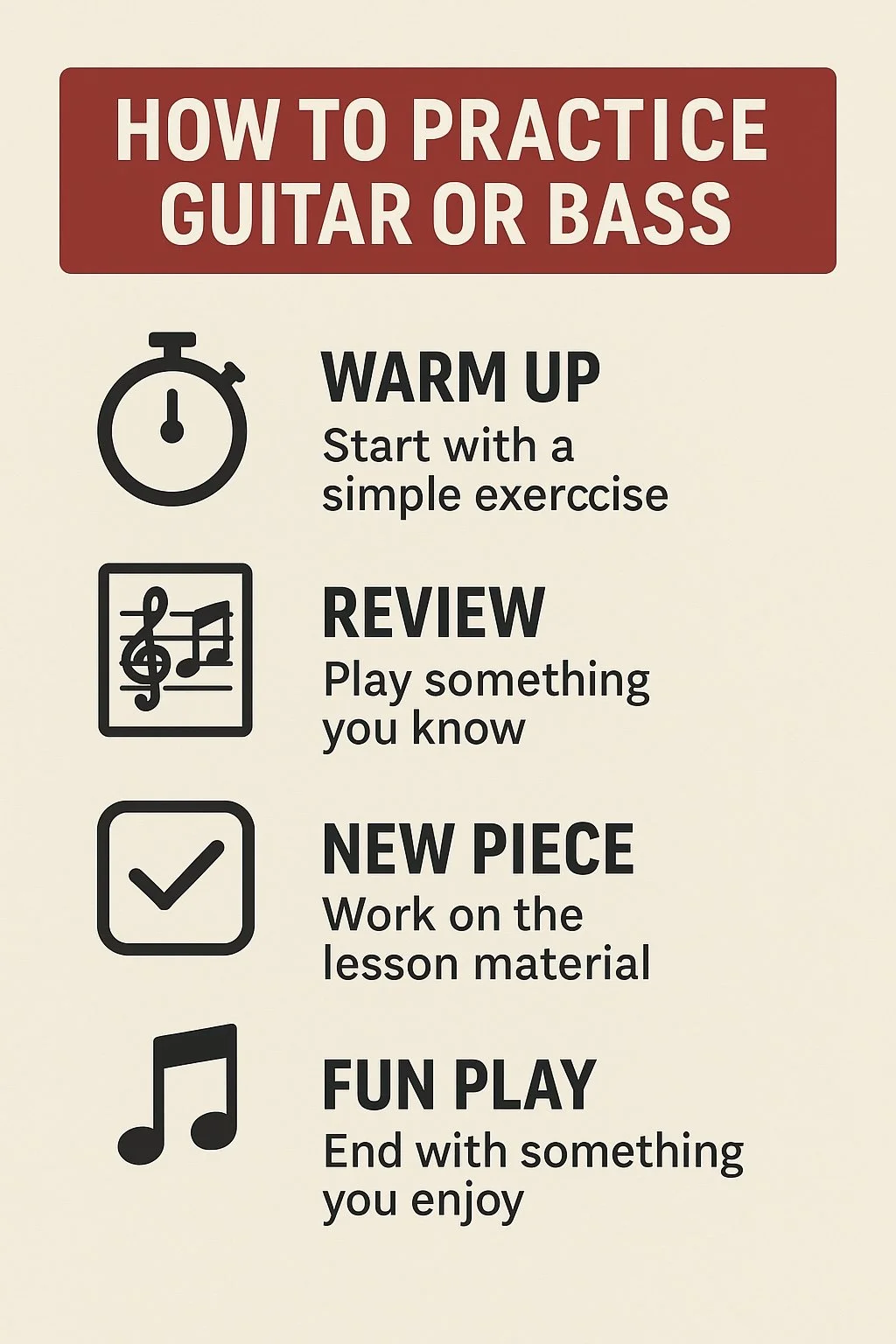How to Practice Guitar or Bass
(Beginner’s Guide)
Learning an instrument is exciting, but progress comes from what you do between lessons. Even just 10–20 minutes a day can make a huge difference. Here’s a simple guide to help you (or your child) get the most out of practice time.
1. Make It a Routine
• Pick a regular time to practice (e.g. after school, before dinner).
• Short, regular sessions are better than one long practice at the weekend.
• Think of it like brushing your teeth — small daily habits add up!
⸻
2. Set Up Your Space
• Have your instrument ready to go (on a stand if possible, not packed away).
• Keep your tuner, picks, strap, and music book in one place.
• A tidy practice space makes it easier to start.
⸻
3. Warm Up First
Spend 2–3 minutes on something simple:
• Open string picking or strumming.
• Finger exercises given in lessons.
• Scales (once you’ve learned them).
This gets your hands moving and your brain focused.
⸻
4. Break Practice Into Three Parts
1. Review – Play something you already know. Builds confidence.
2. New Learning – Work on the piece or skill from your lesson. Take it slowly.
3. Fun Play – End with something you enjoy: a favourite riff, song, or even just making noise!
👉 This keeps practice balanced and enjoyable.
⸻
5. Use Small Goals
Instead of “learn the whole song,” try:
• Play the first 2 bars cleanly.
• Switch between two chords without stopping.
• Keep in time with a backing track for 30 seconds.
Small wins add up fast.
⸻
6. Practice Slowly (and Correctly)
It’s better to play something slowly and correctly than fast and messy. Speed will come naturally with time.
⸻
7. Listen to Yourself
• Use your tuner often to check notes.
• Try clapping or tapping along to keep in time.
• Record yourself occasionally — you’ll hear progress that you don’t notice day to day.
⸻
8. Stay Positive
Everyone makes mistakes — they’re part of learning. Don’t be discouraged if it feels tricky. Improvement comes little by little.
⸻
9. Parents: How to Help
• Encourage practice without nagging — make it part of the daily routine.
• Celebrate effort, not just results (“I love how you kept going, even when it was tough”).
• Ask your child to play you something short after practice — it boosts confidence.
⸻
🎸 In short: Regular, focused, and fun practice is the key. Keep sessions short, have a routine, and celebrate small steps. With steady practice, students will hear and feel their progress week by week.
Contact me.
Ready to start your guitar journey?
Whether you’re a complete beginner, looking to pick up bass, or want to push your playing to the next level — I’d love to help.
Fill out the form below or drop me an email, and I’ll get back to you as soon as possible.
